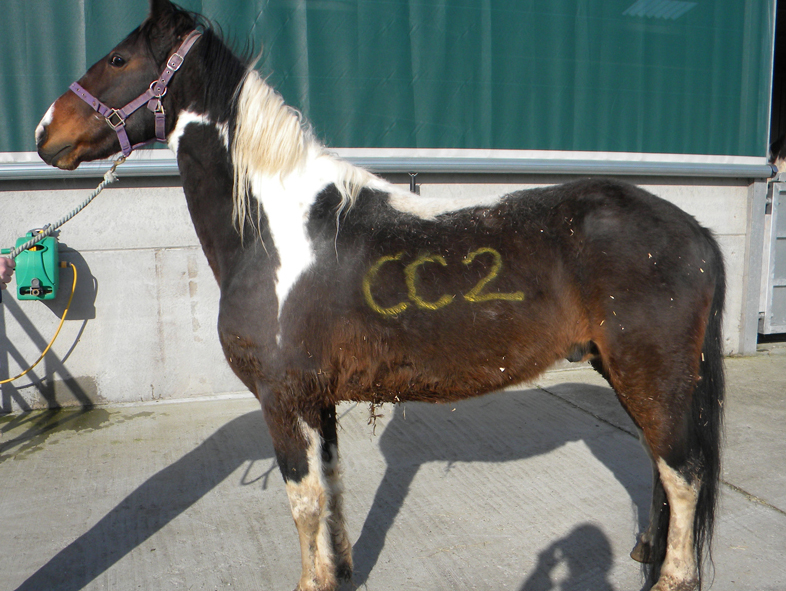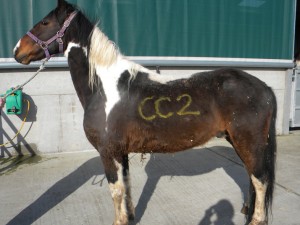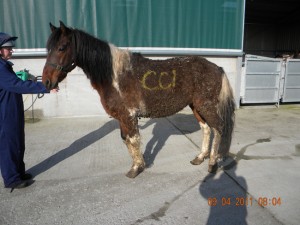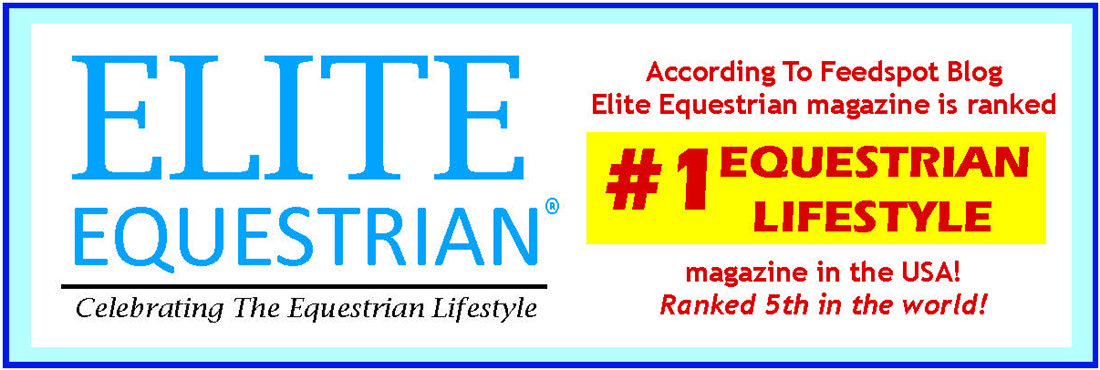
Emaciated horses go from strength to strength and are ready to be rehomed from Penny Farm in Blackpool
View the background details of the case here: http://www.youtube.com/watch?v=s-clNwpMxts
As part of their Rehome a Horse Month, World Horse Welfare tells the story of the two stallions that came into their care as part of a welfare case that was just so horrific; the owner had to be prosecuted.
Their Rehome a Horse Month takes place throughout April across the country and gives the public a chance to offer a loving home to horses that have had a bad start in life – and in turn make space for the ones in desperate need of their help.
There are close to 7,000 horses in need of rescuing or new homes. That’s why the charity is asking for support from the public now.
World Horse Welfare Field Officer, Rachel Andrews was so concerned about a yard in Winsford, Cheshire that she alerted the RSPCA, and together the charities proceeded with a visit to the premises along with the police and a local vet. This is where the two stallions were found.
On arrival the vet decided that due to the poor condition that a group of 10 horses were being kept in, they were to be removed from the site immediately and taken to World Horse Welfare’s Penny Farm in Blackpool.
Once the horses were safely at the farm, the long term neglect that the group had suffered became apparent.
Rachel Andrews said: “The horses had very poor hooves that were extremely cracked, all had a lice infestation, and many were extremely emaciated.”
The vet that was called in from Oakhill Veterinary Centre, David Catlow speaks about the state the horses were in and the steps taken to nurse them back to health.
He says: “When these horses came in we gave them a thorough health check. We needed to discover whether they were actually ill or if it was malnourishment. We treated and identified all the problems that the horses came in with such as the lice infestation or parasite infection; because this can cause anaemia and make them run down.”
The vet continues: “This particular case is typical of what we are seeing more of at the moment – groups of semi feral horses turned out together and abandoned in dreadful conditions, where stallions and mares are allowed to run together, and the problem of indiscriminate breeding causing numbers to expand rapidly.
“Together with the treatment of common problems and illness we can start to build the horse’s normal health back up and see their conditions improving slowly. It is a case of a little at a time, with a good balanced diet and some TLC, but it’s a long process that takes months.”
Toby and Tro were part of this unimaginable situation. When they were found that day, they looked extremely poor with a bleak future ahead of them. The boys were frightened and nervous, left to fend for themselves in dirty, unsafe conditions – living like no animal should have to.
Both in their teens at 15 and 17, Toby and Tro were gelded and eventually backed; slowly they started to trust people again.
Thoroughbred Toby, 14hh, and now an 18-year-old gelding is looking for a new home as a hack to an experienced and confident rider. He is hacking around the farm daily and is reliant on the roads, Toby is happy to be ridden with mares but cannot be turned out with or near mares due to him only be gelded last year; this will get better with time. He is a lovely natured pony with so much love to give and also good with both vet and farrier.
Thoroughbred cross Tro is a 14hh skewbald gelding with a lovely nature, who loves a fuss. He has now been backed and is ready to go to a new home as a hack, with all the same qualities as his friend Toby.
The owner of these two geldings was banned from keeping animals for life and his horses were confiscated and signed over to World Horse Welfare.
Rachel Andrews is delighted at Toby and Tro’s progress since coming into World Horse Welfare’s care:
“It’s great to see the horses improve. When we found them on that day they looked extremely poor but with combined work we have enabled them to have a fresh start. Without the work of the charities involved and the fact that the public alert us to these sorts of issues, these horses would have ended up in a really bad way.”
Toby and Tro are great examples of the work World horse welfare do on a daily basis.
Please give one of our neglected horses the loving home that they deserve here: http://www.worldhorsewelfare.org/rehoming/
*Five advantages to rehome rather than buy:
1) You know what you are getting: Horses fully MOT’d, coming with health records, microchip and passport. Also frank/fair assessment on ability of the horses and its quirks.
2) Horses come with a safety net: We rehome a horse for life and want the horse to stay with you for as long as it lives. But in these uncertain times, it’s very reassuring to know that you can return the horse to us if your circumstances change, or if your child has outgrown it. No one knows what is around the corner, so it can save you a great deal of heartache if you’ve got a safety net in place.
3) The feel-good factor of transforming the life of a horse: A rewarding experience. You are giving the horse a much better life than he’s probably ever had before coming to World Horse Welfare. Often we hear that carers have developed a much stronger bond with their rescue horse than with their other horses because they have been able to show the animal how to trust again. This ‘feel-good’ factor stays with you every day, all year ’round.
4) Rehoming one horse helps others: When you take in a rescue horse, you help other horses by making space at our rescue centres. There are always needy horses waiting to get into our centres, but recently we have only been able to take in the most serious welfare cases because our farms are full to capacity. So we need to free up space by rehoming the horses who have recovered. In choosing to rehome a horse, you become a key part in the vital circle that allows one horse after another to get the care they need.
5) A lifetime of advice and support: An expert horse advisor who makes house calls! When you rehome one of our horses, you have the full breadth of our 80 years’ of horse expertise at your disposal. You can call our advice line to get answers to specific questions, and twice per year your local World horse Welfare Officer will visit you and your horse to help you with any support or advice you may need – or simply to say ‘hello’.
About World Horse Welfare:
World Horse Wefare’s website here: http://www.worldhorsewelfare.org/Home
World Horse Welfare (Registered charity no: 206658 and SC038384), is an international horse charity that improves the lives of horses in the UK and worldwide through education, campaigning and hands-on care of horses. Since we were founded in 1927, our whole approach has been practical, based on scientific evidence and our extensive experience, and focused on delivering lasting change across the full spectrum of the horse world.
In the UK our dedicated network of Field Officers investigate and resolve welfare problems, and we run four Rescue and Rehoming Centres where horses in need can receive specialist care, undergo rehabilitation and find loving new homes through our rehoming scheme – the largest of its kind in the UK. Our international training programmes alleviate the suffering of thousands of working horses by providing essential knowledge for horse owning communities in the developing world. We also work tirelessly to change legislation and attitudes to horse welfare through campaigns and education, including our founding campaign to end the suffering endured by the tens of thousands of horses transported long-distance across Europe to slaughter each year. We support the responsible use of horses in sport, and are an official welfare arm of the Fédération Equestre Intemationale (FEI) and welfare advisors to the British Horseracing Authority.
For further information please contact World Horse Welfare’s Press Officer Amy Fordham on 01953 497248 and 07568 368580 or email amyfordham@worldhorsewelfare.org



